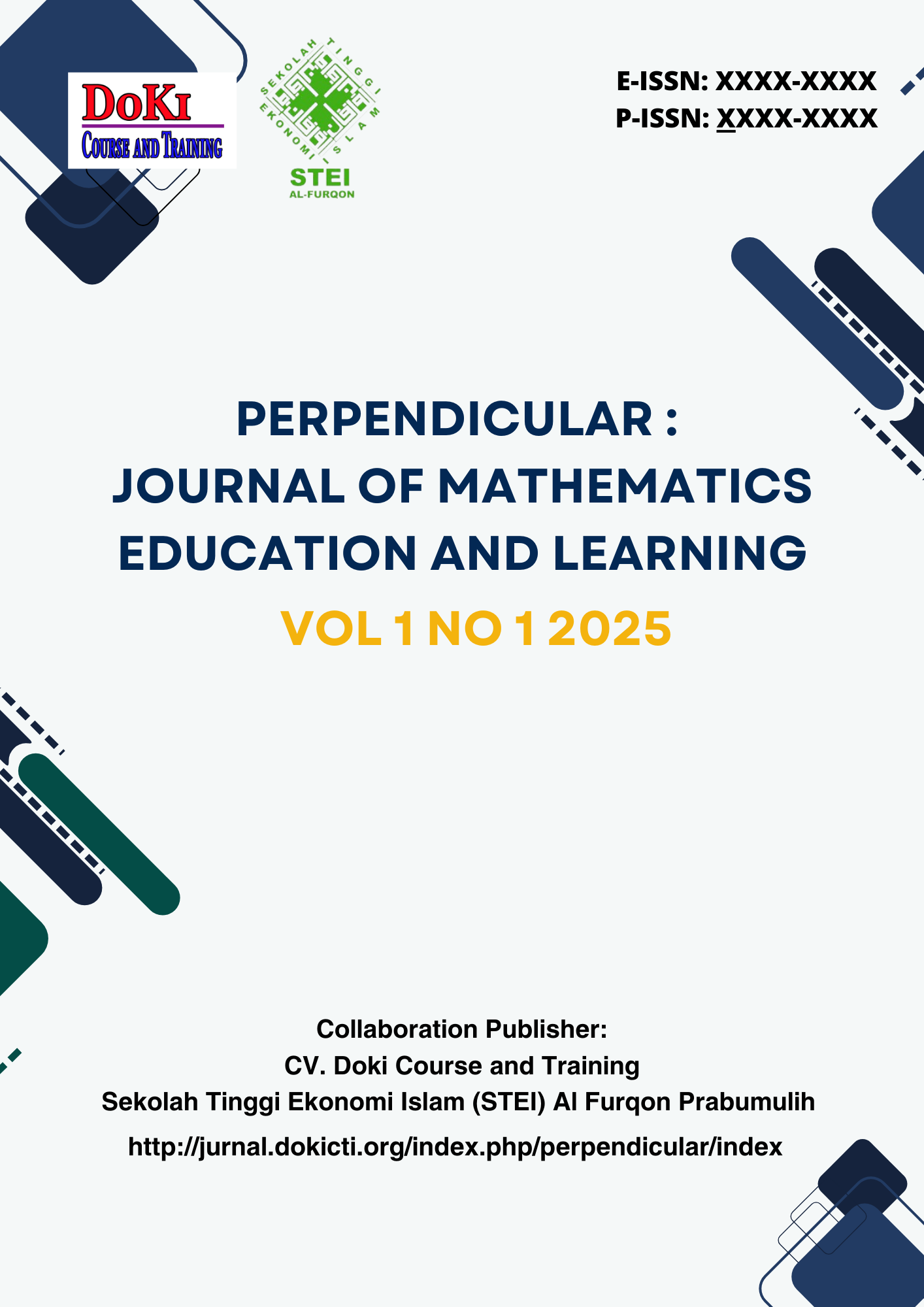THE EFFECT OF THE INDONESIAN REALISTIC MATHEMATICS EDUCATION (PMRI) APPROACH ON PROBLEM-SOLVING ABILITIES AND LEARNING MOTIVATION OF GRADE VII STUDENTS AT SMP NEGERI 2 AIR SALEK
DOI:
https://doi.org/10.61994/perpendicular.v1i1.909Keywords:
Mathematical problem-solving, PMRI, Learning motivationAbstract
This study aimed to investigate the effect of the Indonesian Realistic Mathematics Education (PMRI) approach on students' mathematical problem-solving abilities and learning motivation. A true experimental design was employed with a posttest-only control group. The sample consisted of 72 students (36 experimental, 36 control) selected through random sampling. Data were collected using a problem-solving ability test and a learning motivation questionnaire (30 items, 5-point Likert scale). The instruments were validated through expert review and pilot testing, achieving a Cronbach’s alpha of 0.89 for the questionnaire. Independent t-tests revealed a significant difference in problem-solving ability between the experimental and control groups (t = -9.62, p < 0.001). However, learning motivation results did not show a statistically significant difference (t = -6.20, p = 0.269). The findings suggest that PMRI enhances students’ problem-solving abilities but may require longer intervention periods to influence motivation.
Downloads
Published
Issue
Section
License
Copyright (c) 2025 Miko Yoga Wahida

This work is licensed under a Creative Commons Attribution-ShareAlike 4.0 International License.







